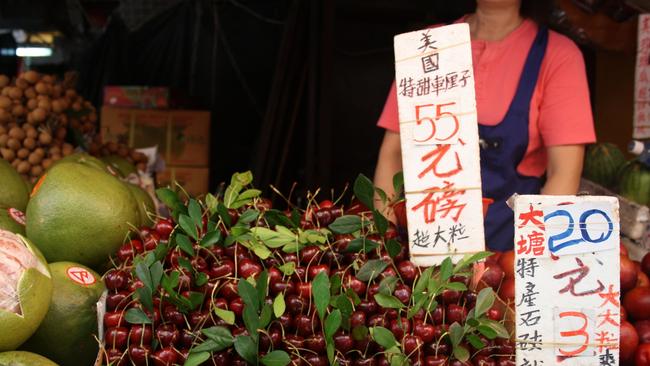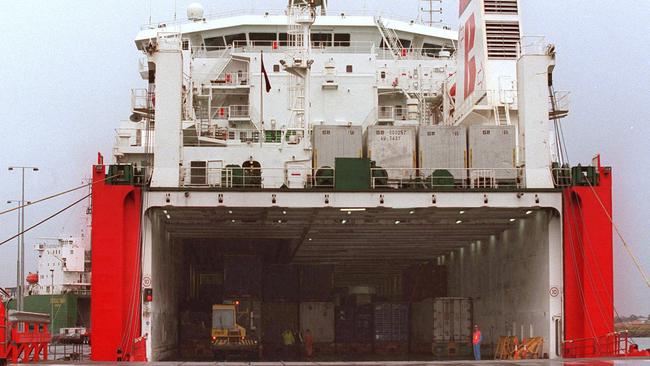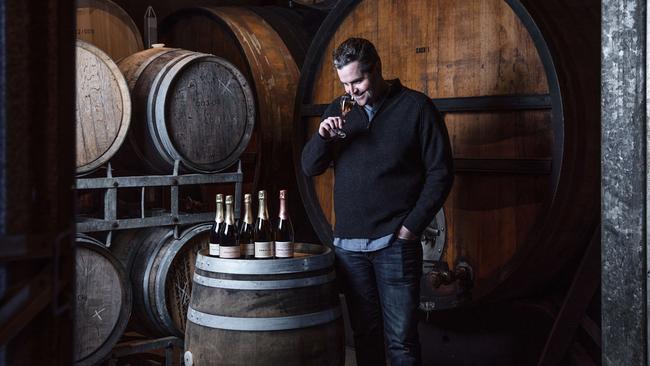‘Weird anomalies’: Industries demand pre-election fix to Tasmanian freight scheme
Cabinet makers can claim the cost of timber but not hinges or handles; a new bottle shape requires multiple signed forms. No wonder industry wants the Tasmanian Freight Equalisation Scheme overhauled.

Key industries will push both major parties to back reform and increases to the $180m scheme that compensates Tasmanian companies for the extra cost of moving goods across Bass Strait.
With several Tasmanian marginal seats in play at this federal election, the state’s peak business and industry groups will demand Labor and the Coalition commit to an overhaul of the Tasmanian Freight Equalisation Scheme.
Backed by the findings of a recent Senate inquiry, they say the scheme has become choked in red-tape and – due to a lack of proper price revision since the 1990s – no longer remotely reflective of shipping costs.
“Both major parties will need to have policies on this critical issue before we head to an election because Tasmanian business and industry will be calling for it,” said Michael Bailey, chief executive of the Tasmanian Chamber of Commerce and Industry.
“If they don’t, we’ll call them out very hard. This is a key election issue for every Tasmanian business that brings products into the state or exports products to the mainland or overseas.
“It flows right through the cornerstones of the heartland of Tasmania, whether it be aquaculture, wine, agriculture or fruit. With the right model in place, we’ll see businesses growing in Tasmania.”

“The trans-modal amount was set over 30 years ago and is probably 10 to 15 times out of whack – it should be more like $300 to $400 per end, rather than $50,” he said. Payments for smaller loads were difficult to secure through an overly bureaucratic, poorly designed and inadequate claims system, he said.
Business wanted the system administered by an industry-focused body, rather than Services Australia. “Exporters currently need to go through a very complicated Centrelink process, which is designed to make things very difficult,” Mr Bailey said. “It just gets too hard.”
The scheme was plagued by restrictive time frames and “weird anomalies”. “Cabinet makers can claim for wood coming into the state but not things like hinges and door handles,” he said.
Mr Bailey said the federal budget allocation for the scheme was never spent because the onerous requirements and low payments meant many gave up trying to access it.
Tasmania’s burgeoning wine industry says its producers still pay on average 35 per cent more to send their product from Tasmania, compared to sending product from Melbourne.
“Sending a dozen bottles from Tasmania to regional SA would cost $13.76 more than sending a dozen bottles from Melbourne,” Wine Tasmania said in its Senate inquiry submission.
“The TFES rebate would be approximately 80c – not coming close to equalling freight costs.
“More than 40 per cent of Tasmanian wine businesses are not claiming the TFES due to the onerous process and minuscule rebate amount.”
Wine Tas said direct sales to customers – a growing trade for the state’s small, high-value wineries – were not covered by the scheme, stymieing growth.
Some of the red-tape was farcical. “If a new glass bottle shape is released, every wine business needs to add it to their list of claimable products,” it said. “This requires each to get a signed form from the manufacturer and a different signed form from the local distributor.”

The fruit industry said it was even unable to claim the cost of shipping in reusable wooden apple bins. “It doesn’t make sense, particularly in these environmentally aware times, that southbound disposable plastic packaging is claimable under the scheme, but (wooden) apple bins and other reusable containers are not,” it said.
Opposition infrastructure spokeswoman Bridget McKenzie said Coalition senators had been vocal and active in the inquiry, but did not commit a Dutton government to reform.
Infrastructure Minister Catherine King said the government was considering the inquiry report. “The Albanese government is committed to ensuring that Tasmanian businesses and communities are not disadvantaged when it comes to the movement of goods between the mainland and Tasmania,” Ms King said.
“We know that Tasmanians are concerned about the rising costs of shipping and we want to make sure that TFES continues to provide the support it was intended to provide.”






To join the conversation, please log in. Don't have an account? Register
Join the conversation, you are commenting as Logout